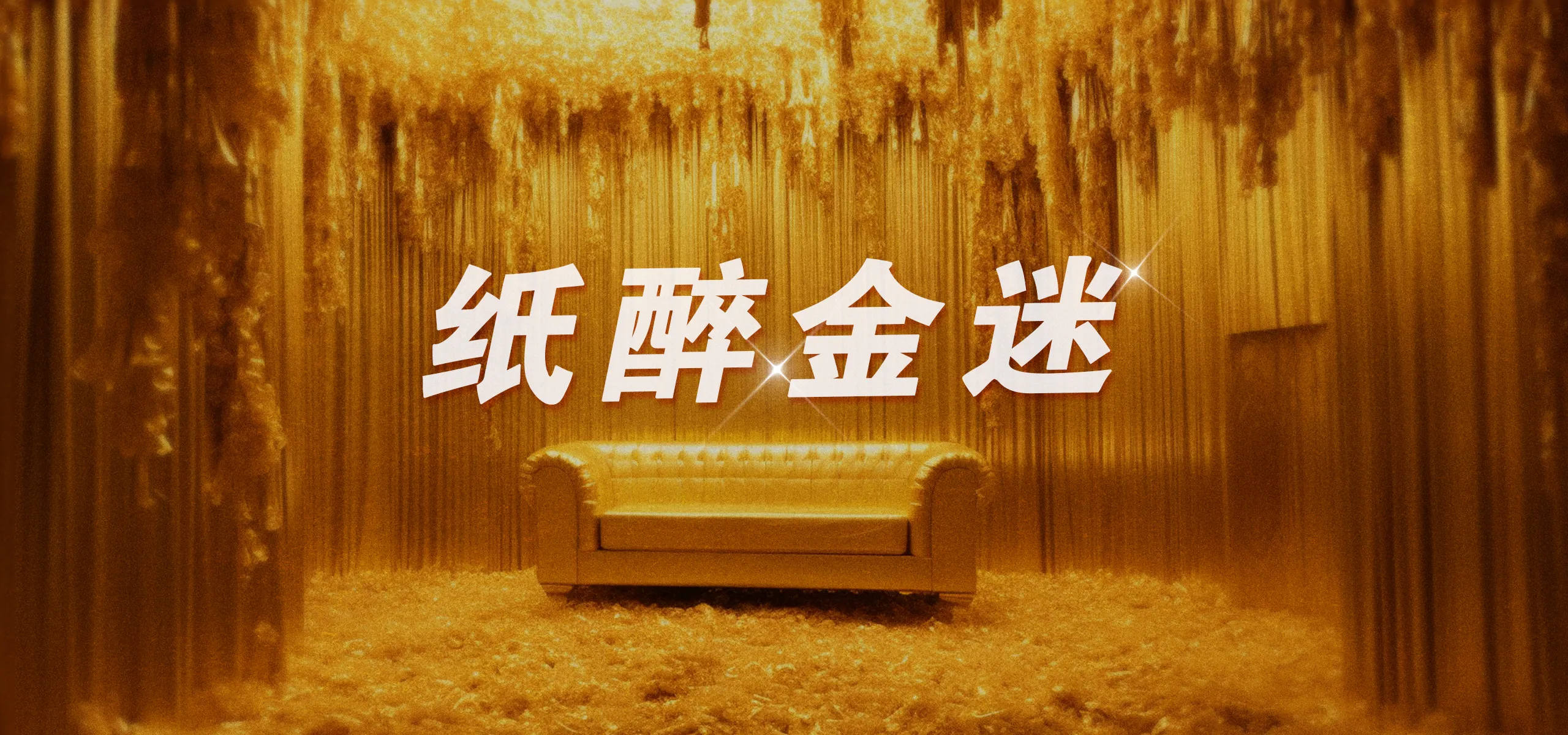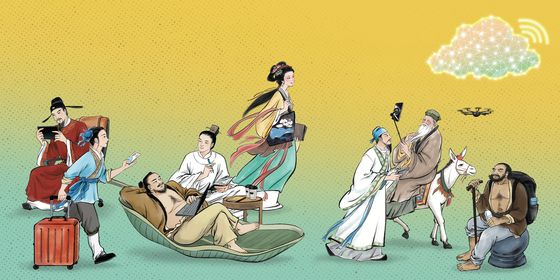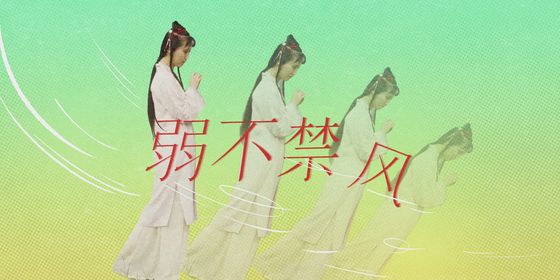Learn these essential Chinese proverbs to describe lavish living, obscene wealth, and the pitfalls of extravagance
Behind Wang Hongquan’s glass closet door, Hermès handbags glisten, their elegance matched only by the jewelry boxes filled with precious green jade. Wang is an influencer on Douyin (China’s version of TikTok) who gained more than 4 million followers with videos showing off his lavish wealth, including images of luxury cars and celebrities he’s hung out with at exclusive events. Dubbed “China’s Kim Kardashian,” Wang claims to own seven houses in Beijing worth 800 million yuan, and boasts that he has never worked a single day, thanks to wealth passed down from his family.
But then in late May, quite suddenly, his account was suspended.
He wasn’t alone. Several influencers known for their ostentation also had their accounts banned across different social media platforms. This was part of a campaign launched by the Cyberspace Administration of China in April to crack down on content promoting “harmful values,” including materialism and extravagant spending.
Learn more common Chinese proverbs:
- Idiomized: How to Talk Fake News in 4 Characters
- Chinese “chengyu” to Complain About Your Boss
- Useful Chinese Idioms About Insects
It may be considered vulgar to show off one’s wealth, but the urge to flaunt it has a long precedent. The Qin dynasty (221 – 206 BCE) rebel leader Xiang Yu (项羽) once stated, “If you become wealthy and don’t return to your hometown, it’s like wearing fine clothes in the dark; no one will know.” Unfortunately, when Xiang returned home after overthrowing the Qin dynasty, he ended up losing the territory to Liu Bang (刘邦), who later founded the Han dynasty (206 BCE – 220 CE).
Extravagant living has traditionally been frowned upon throughout Chinese history, with numerous cautionary tales warning against it. This sentiment is captured in several (normally pejorative) idioms to describe the luxurious life:
Brocades and delicacies 锦衣玉食
锦衣玉食 (jǐnyī yùshí) refers to a lifestyle characterized by exquisite clothing and gluttony. It is often used to describe people who are spoiled and pampered. For instance:
In Douyin videos, she is a young lady of brocades and delicacies.
在抖音视频里,她是个锦衣玉食的名媛。
A similar idiom is 象箸玉杯 (xiàngzhù yùbēi), meaning “ivory chopsticks and jade cups.” This idiom is less common in daily conversation but has an interesting etymology. It was coined by Hanfeizi (韩非子), a Warring State period (475 – 221 BCE) politician, in his namesake essay collection on the infamous King Zhou, whose debauched and tyrannical rule ruined the Shang dynasty (1600 – 1046 BCE). In the tale, King Zhou’s upright minister, Jizi (箕子), warns him against his extravagance after seeing ivory chopsticks presented at a feast. He tells the king that he would have to match those with jade cups, elephant’s tail, and leopard placenta (considered rare delicacies). Later, he would grow even greedier, only wearing silk garments and living in a grand palace, while losing touch with the common people, Jizi claimed. The king flies into a rage and throws Jizi in jail. According to historical records, Jizi eventually fled and established his own state in present-day Korea.)
Red lanterns and green wine 灯红酒绿
灯红酒绿 (dēnghóng jiǔlǜ) refers to a night scene of color and bustle, feasting and revelry. It often describes urban nightlife districts filled with bars and clubs. When used, the implication is that a person is caught up in frivolity and dissolution. For example:
He doesn’t go to work, every day he leads a red lantern and green wine sort of life.
他不用工作,每天过着灯红酒绿的生活。
The green wine in the idiom refers to fermented rice wine in ancient times. Without a fine filtering process, rice grist and foam would float to the surface and turn green over time. Fermented rice was also commonly referred to as “green ants’ wine” in ancient poems, with the floating grist made analogous to ants.
Lost in a haze of gold 纸醉金迷
This chengyu describes an indulgence in luxury and pleasure. It comes from a story in Records of Pure Marvels (《清异录》), a chronicle of customs, historical anecdotes, and supernatural tales compiled by the 10th-century scholar Tao Gu (陶毂). In the story, a court physician familiar with the lavish lifestyles of the imperial palace decorates his own room with gold foil-covered furniture. One of his guests comments: “I’m lost in a haze of gold!” The anecdote was meant to illustrate the extreme corruption and extravagance of the court. The idiom is still commonly used, as in:
The wealthy blogger gets lost in a haze of gold to attract social media followers.
炫富博主用纸醉金迷的生活吸引了不少粉丝。
Sensual pleasures 声色犬马
声色犬马 (shēngsè quǎnmǎ) literally translates to “music, (beautiful) women, hounds, and horses.” It originated from a historical essay by Su Zhe (苏辙), an 11th-century scholar and politician, in which Su describes the bad advice an emperor receives from his treacherous ministers who want to corrupt his mind and body. Here’s an example of the idiom in practice:
Since winning the lottery, he has surrounded himself with music, women, hounds, and horses.
中了彩票以后,他就沉迷在声色犬马之中。
Recklessly waste things 暴殄天物
This phrase was coined to describe the infamous King Zhou of Shang and his decadent lifestyle in the Book of Documents (《尚书》), one of the “five classics” of ancient Chinese literature, compiled more than 3,000 years ago by various scholars. Literally meaning “recklessly waste the Heaven’s creations,” the idiom emphasizes apathy toward wastefulness.
At the end of the banquet, a recklessly wasteful amount of food remained on the table.
宴席结束时,桌子上还有很多剩菜,真是暴殄天物。












